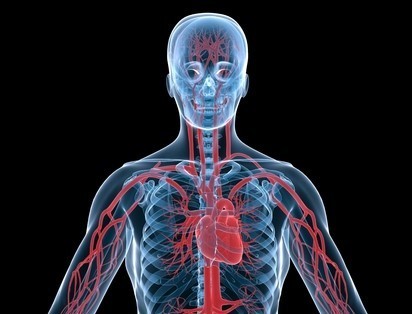Patient cognitive impairment associated with inconsistent treatment patterns for heart attack

A new, prospective study has assessed the treatment patterns of hospitalized heart attack patients and observed those with mild cognitive impairment (MCI) to receive fewer therapies compared with similar patients not presenting with cognitive decline.
Mild cognitive impairment (MCI) is on the cognitive decline scale between normal cognition and dementia. There is no data to suggest that patients with MCI will not respond effectively to established heart attack treatments. However, in a new study, researchers from the University of Michigan School of Medicine (MI, USA) have observed that MCI patients hospitalized following heart attack incidence were less likely to receive common, proven heart attack therapies compared with individuals who did not display cognitive impairment.
Unlike dementia, patients with MCI do not suffer significant disabilities in their everyday lives and their cognitive function does not necessarily worsen over time.
Deborah Levine, an Associate Professor of internal medicine and neurology at Michigan Medicine, explained: “Although people with MCI have an increased risk of developing dementia, it’s not an inevitable next step. Many will persist in having MCI, and a few will actually improve and revert to normal cognition. Many older adults with MCI live years with good quality of life, and so face common health risks of aging like heart attack and stroke.”
Frequently asked questions:
- What are the symptoms of a heart attack?
- Can heart attacks cause strokes?
- What causes heart attacks?
In the study, researchers analyzed treatment pattern data on 609 patients, over the age of 65, who were hospitalized as a result of a heart attack between 2000 and 2011. Data were obtained from The University of Michigan’s Health and Retirement Study (MI, USA), Medicare and the American Hospital Association (IL, USA).
Cardiac catheterization and coronary revascularization surgery are two proven, effective post-heart attack treatments. Researchers found that the rates of administration of these regimens were significantly lower amongst patients with pre-existing MCI compared with patients without cognitive decline.
Receipt of cardiac catheterization was 50% amongst heart attack survivors with pre-existing MCI. By contrast, this figure was 77% for patients without such cognitive impairment.
Even more notable, provision rates of coronary revascularization surgery for patients with MCI compared with patients without MCI were 29% and 63% respectively.
Brahmajee Nallamothu, an interventional cardiologist and Professor of internal medicine at Michigan Medicine, and senior study author, concluded: “Studies like this are an important first step in raising awareness on MCI so that providers, like cardiologists, can make sure they offer the best therapies available during heart attacks.”
Sources:
Levine DA, Langa KM, Galecki A et al. Mild Cognitive Impairment and Receipt of Treatments for Acute Myocardial Infarction in Older Adults. J Gen Intern Med. doi: 10.1007/s11606-019-05155-8 (Epub ahead of print) (2019);
What are the symptoms of a heart attack?
Common symptoms of heart attack include chest pain, shortness of breath, dizziness, nausea and pain in other body parts, particularly the left arm.
Can heart attacks cause strokes?
A stroke differs from a heart attack in that blood supply to the brain is restricted during a stroke, compared with blood flow to the heart during a heart attack. Suffering from a heart attack, especially one in which low blood flow persists for a long period of time, can put an individual at increased risk of experiencing a stroke within the first year following the heart attack. After 1 year, this risk is reduced.
What causes heart attacks?
Heart attacks occur as a result of the disruption of blood supply to the heart itself. This can cause the heart muscle to be damaged and the blood supply to the rest of the body can be affected.
